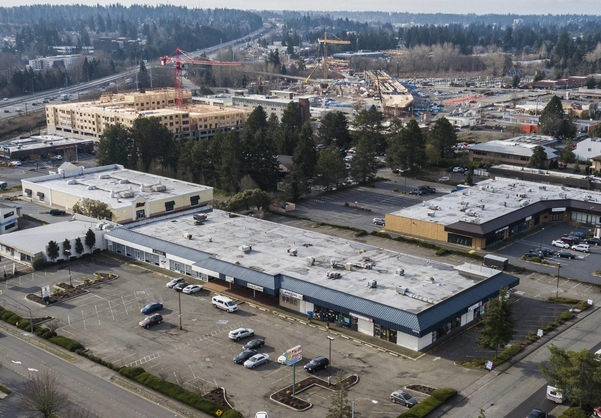Input 2021.02.19 11:00
According to the real estate industry on the 19th, last month, US developer Trent Development applied for an initial permit to convert a one-story strip mall in Lynnwood City, Seattle (a line of shops and restaurants) into a residential facility. By 2024, the strip mall site is planned to be converted into an apartment consisting of a studio (living room) and one or two bedrooms.
This is based on the judgment that housing supply is insufficient. According to The Herald, a local US press, Christine Holsworth, in charge of development, said in an interview, “The housing supply is still insufficient. Because demand is outpacing supply, housing prices continue to increase.”

This is due to the rapid growth of the e-commerce market in the aftermath of Corona 19. Rather than visiting shopping malls to purchase products, e-commerce purchases have increased, and demand for logistics facilities has increased.
This trend can be well understood by looking at the movement of Amazon, a leading US e-commerce company. Amazon invested $3.1 billion (3.43 trillion won) in securing a distribution center in 2019 alone. Between 2003 and 2018, sales increased by an average of 26.3% per annum, and logistics center area also increased by 27.5%.
“Retail properties such as shopping malls and hotels have directly seen the damage of Corona 19,” said Kim Sun-mi, a research fellow at Shinhan Financial Investment’s Alternative Investment Analysis. “The redevelopment and conversion of these to housing and distribution warehouses are being promoted, but the asset value is expected to be formed at 60-90% of the pre-pandemic level.”
The domestic situation is similar. Last month, the developer Wells Advisors and Hyundai E&C acquired’Le Méridien Seoul’ in Yeoksam-dong, Gangnam-gu, Seoul for 700 billion won (a site area of 10,362m2), which was on the market, and the two companies plan to develop it as a luxury housing facility. Mirae Asset Asset Management plans to develop the Lotte Outlet Gwanggyo Branch, which was purchased for 278 billion won, into a complex facility that combines officetel and commercial facilities.

